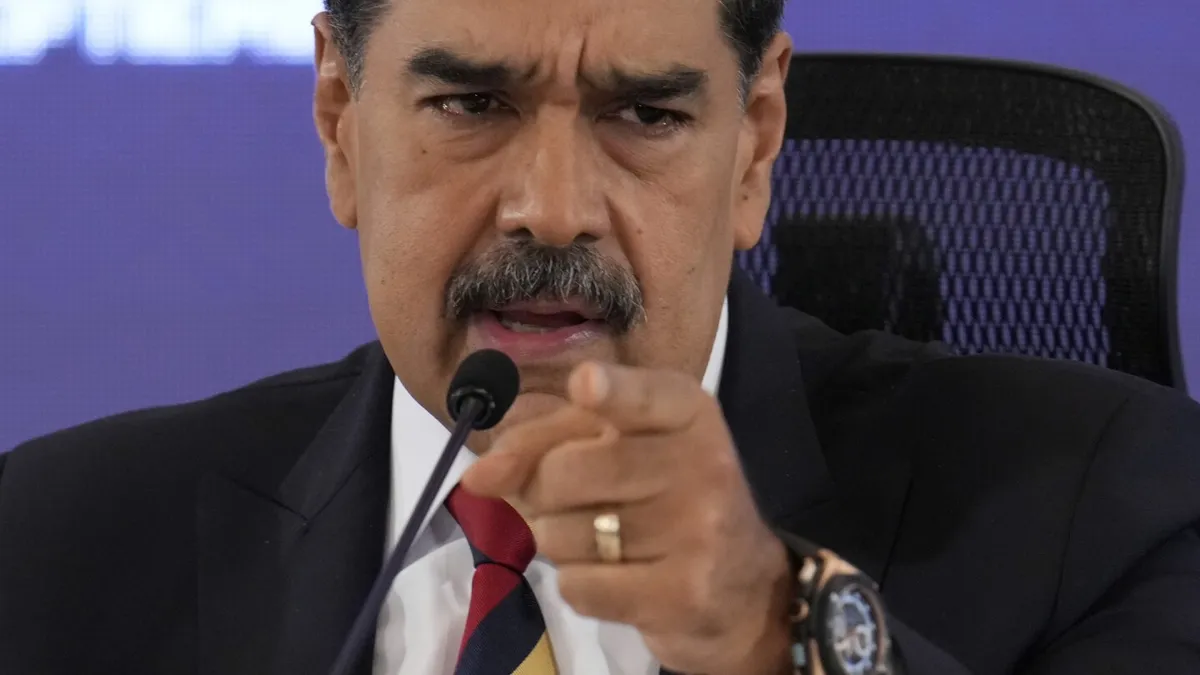
On Monday, Venezuelan President Nicolás Maduro made a bold statement regarding the potential U.S. military presence in the Caribbean, asserting that he would “constitutionally declare a republic in arms” should the South American nation face an attack from U.S. forces. This declaration comes as the United States government plans to strengthen its maritime capabilities near Venezuela in an effort to combat threats posed by Latin American drug cartels.
The increased U.S. military presence includes the deployment of two Aegis guided-missile destroyers, the USS Gravely and the USS Jason Dunham, along with the destroyer USS Sampson and the cruiser USS Lake Erie. This naval force is set to expand further with the arrival of three amphibious assault ships this week, which will bring over 4,000 sailors and Marines to the region. According to a defense official who spoke anonymously, these operations are currently ongoing as the U.S. focuses on countering drug trafficking in the area.
In response to what he termed a “maximum military pressure,” President Maduro announced a state of heightened readiness to defend Venezuela. He characterized the U.S. military deployment as “an extravagant, unjustifiable, immoral and absolutely criminal and bloody threat.” To bolster national defense, Maduro's government has mobilized troops along the coast and the border with Colombia, urging Venezuelans to join a civilian militia.
During a virtual meeting with various Latin American counterparts, Venezuelan Foreign Minister Yván Gil criticized the U.S. narrative regarding drug trafficking. Citing a United Nations report, he highlighted that 87% of cocaine produced in Colombia is shipped via the Pacific, with only 5% transiting through Venezuela. Gil warned that the ongoing U.S. military deployment threatens regional stability and called for an immediate halt to these operations.
Maduro also addressed the legitimacy of his presidency, asserting that he was the rightful winner of the last year's election—a claim disputed by numerous countries, including the U.S., which do not recognize him as Venezuela's legitimate leader. Since the July 2024 presidential election, the Venezuelan political opposition has sought international pressure to compel Maduro to step down. María Corina Machado, a prominent opposition leader, has commended the U.S. military presence as an appropriate response to what she describes as a “criminal enterprise” governing Venezuela.
In his remarks, Maduro cautioned that any military action from the United States would result in severe consequences, claiming it would “stain” President Donald Trump’s “hands with blood.” He declared, “The pursuit of regime change is exhausted; it has failed as a policy worldwide,” emphasizing that the U.S. should not attempt to impose its will on Venezuela.
As tensions continue to escalate in the region, the implications of U.S. military actions and Maduro's responses will undoubtedly shape the political landscape in Venezuela and its relations with neighboring countries.
___
Reported by Garcia Cano from Mexico City, with contributions from Associated Press writer Konstantin Toropin in Washington.